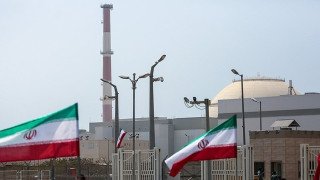For many women, menstruation is a routine part of life, but for astronauts, it presents unique challenges.
Imagine being far from Earth, floating in space, dealing with menstrual discomfort without the usual comforts or medical support you might have on the ground. It’s a situation that requires not only practical solutions but also a deep understanding of how the human body behaves in zero gravity.
Women experience a range of discomforts during their menstrual cycle, including cramps, mood swings, and fatigue. Most of the time, these issues are manageable with pain relief or other treatments. But what happens when you’re in space, millions of miles from home, with no easy access to over-the-counter painkillers or a warm shower?
In the microgravity environment of space, menstruation works a little differently. The absence of gravity can impact the way blood flows, and researchers are still learning how this affects the female body during long-duration missions. On top of that, there’s the physical and emotional strain of being away from family and friends, and the added challenge of managing something as personal as your menstrual cycle in a confined and controlled environment.
Space agencies have taken steps to address this issue. Female astronauts are given products designed to handle menstruation in space, such as specially designed tampons and menstrual cups. However, the issue extends beyond just physical products. Space missions, especially long ones, require careful planning for the well-being of all astronauts.
One innovative approach is the option for women to freeze their eggs before embarking on space missions. This provides peace of mind that if the mission impacts their reproductive health, they still have options once they return to Earth. This forward-thinking support highlights the importance of female astronauts’ health and how agencies are adapting to ensure their well-being.
Also Read; Russia Strikes Ukraine’s Power Plant
Amid Winter
While it’s still not fully understood how zero gravity affects menstruation in the long term, ongoing research is focused on finding solutions. Scientists are studying the effects of space on the body, from muscle loss to changes in the menstrual cycle, to ensure that astronauts are prepared for the challenges they face.
As the world continues to push the boundaries of space exploration, especially with missions to Mars on the horizon, supporting female astronauts is crucial. The inclusion of women in space travel is not just about equality, it’s about ensuring that all astronauts—regardless of gender—are equipped with the resources and knowledge they need to succeed. With ongoing research, thoughtful planning, and support systems in place, women astronauts can face the challenges of space travel with confidence and strength.
Ultimately, as we look ahead to future space missions, the experiences of women like Sunita Williams and others are helping shape the future of space exploration, ensuring that everyone has the opportunity to contribute to this exciting frontier.







